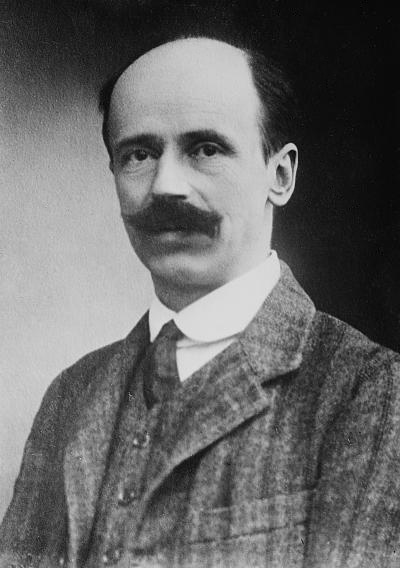|
Hungarian Agricultural Labourers And Workers Party
The Hungarian Agricultural Labourers and Workers Party ( hu, Magyarországi Földmíves és Munkáspárt, MFMP) was a political party in Hungary during the inter-war period. History The party first contested national elections in 1926,Dieter Nohlen & Philip Stöver (2010) ''Elections in Europe: A data handbook'', p. 908 failing to win a seat in the parliamentary elections A general election is a political voting election where generally all or most members of a given political body are chosen. These are usually held for a nation, state, or territory's primary legislative body, and are different from by-elections ( ... that year. It also failed to win a seat in the 1931 elections, but succeeded in winning a single seat in the 1935 elections. It did not contest any further elections. References {{Hungarian political parties Defunct political parties in Hungary ... [...More Info...] [...Related Items...] OR: [Wikipedia] [Google] [Baidu] |
Hungary
Hungary ( hu, Magyarország ) is a landlocked country in Central Europe. Spanning of the Carpathian Basin, it is bordered by Slovakia to the north, Ukraine to the northeast, Romania to the east and southeast, Serbia to the south, Croatia and Slovenia to the southwest, and Austria to the west. Hungary has a population of nearly 9 million, mostly ethnic Hungarians and a significant Romani minority. Hungarian, the official language, is the world's most widely spoken Uralic language and among the few non-Indo-European languages widely spoken in Europe. Budapest is the country's capital and largest city; other major urban areas include Debrecen, Szeged, Miskolc, Pécs, and Győr. The territory of present-day Hungary has for centuries been a crossroads for various peoples, including Celts, Romans, Germanic tribes, Huns, West Slavs and the Avars. The foundation of the Hungarian state was established in the late 9th century AD with the conquest of the Carpathian Basin by Hungar ... [...More Info...] [...Related Items...] OR: [Wikipedia] [Google] [Baidu] |
Dieter Nohlen
Dieter Nohlen (born 6 November 1939) is a German academic and political scientist. He currently holds the position of Emeritus Professor of Political Science in the Faculty of Economic and Social Sciences of the University of Heidelberg. An expert on electoral system An electoral system or voting system is a set of rules that determine how elections and referendums are conducted and how their results are determined. Electoral systems are used in politics to elect governments, while non-political elections ma ...s and political development, he has published several books. IDEA Bibliography Books published by Nohlen include: *''Electoral systems of the world'' (in German, 1978) *''Lexicon of politics'' (seven volumes) *''Elections and Electoral Systems'' (1996) *''Electi ...[...More Info...] [...Related Items...] OR: [Wikipedia] [Google] [Baidu] |
1926 Hungarian Parliamentary Election
Parliamentary elections were held in Hungary between 8 and 15 December 1926. Dieter Nohlen & Philip Stöver (2010) ''Elections in Europe: A data handbook'', p899 The result was a victory for the Unity Party, which won 161 of the 245 seats in Parliament. István Bethlen remained Prime Minister. Electoral system Prior to the election the electoral system was changed again. In the previous elections there had been 219 constituencies, of which 195 were openly elected single-member constituencies, 20 of which were secretly elected single-member constituencies, and four of which were secretly elected multi-member constituencies. For this election there were 199 openly elected single-member constituencies and 11 secretly elected multi-member constituencies electing a total of 46 seats.Nohlen & Stöver, p918Nohlen & Stöver, p933 Results The number of votes refers to only 109 of the 199 single-member constituencies as 90 seats were uncontested. The number of votes refers to ten of ... [...More Info...] [...Related Items...] OR: [Wikipedia] [Google] [Baidu] |
1931 Hungarian Parliamentary Election
Parliamentary elections were held in Hungary between 28 and 30 June 1931. Dieter Nohlen & Philip Stöver (2010) ''Elections in Europe: A data handbook'', p899 The result was a victory for the Unity Party, which won 149 of the 245 seats in Parliament. István Bethlen remained Prime Minister, but resigned on 24 August due to the effects of the Great Depression and was replaced by Gyula Károlyi. Electoral system The electoral system remained the same as in 1926. There were 199 openly elected single-member constituencies and 11 secretly elected multi-member constituencies electing a total of 46 seats.Nohlen & Stöver, p919Nohlen & Stöver, p933 Results The total number of registered voters was 2,549,178, but only 1,907,112 were registered in contested constituencies for which figures are available. By constituency type Notes References {{Hungarian elections Hungary Elections in Hungary Parliamentary Hungary Hungary ( hu, Magyarország ) is a landlocked countr ... [...More Info...] [...Related Items...] OR: [Wikipedia] [Google] [Baidu] |
1935 Hungarian Parliamentary Election
Parliamentary elections were held in Hungary between 31 March and 7 April 1935. Dieter Nohlen & Philip Stöver (2010) ''Elections in Europe: A data handbook'', p899 The result was a victory for the Party of National Unity, which won 164 of the 245 seats in Parliament. Gyula Gömbös remained Prime Minister. Electoral system The electoral system remained the same as in 1931. There were 199 openly elected single-member constituencies and 11 secretly elected multi-member constituencies electing a total of 46 seats.Nohlen & Stöver, p920 Results The number of votes refers to only 146 of the 199 single-member constituencies, as 53 seats were uncontested. The number of votes refers to ten of the eleven MMCs. The National Radical Party and the National Independence Kossuth Party ran a joint list in one multi-member constituency. It won a single seat, taken by the National Independence Kossuth Party.Nohlen & Stöver, p930 The total number of registered voters was 3,005,742; t ... [...More Info...] [...Related Items...] OR: [Wikipedia] [Google] [Baidu] |

